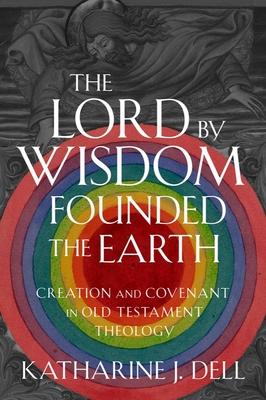In Proverbs, wisdom is personified as a woman who is with God at the creation of the world, delighting in what God has made. In Job, God appears in theophany and describes the wonders of the earth and heavens. There are thus revealed detailed descriptions of God's work in creation in the wisdom literature. Key themes that emerge from these passages are the foundation of the earth, its division from the heavens and the waters, God's provision of all of nature as well as human and animal life, God's relationship to the world, and the ethics and morality of our human response. There is also a wealth of covenant language that includes creation and links up with wisdom texts as well. This is epitomized in Noah's covenant with God and the sign of the rainbow.
In The Lord by Wisdom Founded the Earth, Katharine J. Dell illuminates the Old Testament theological themes of creation and covenant, interpreting them through the lens of wisdom. Dell shifts attention from the Genesis accounts of creation to allow for a fresh reading from texts in Proverbs, Job, and Ecclesiastes. She subsequently assesses Genesis and certain "creation" Psalms for similarities and differences. This approach allows the creation theme to be prioritized in new ways and then brought into dialogue with covenant ideas, leading to a reconsideration of Genesis 9, with its profound image of the rainbow as a sign within creation of the covenant between God and the world, and various prophetic texts--passages wherein the close symbiosis of covenant with creation has been overlooked. Furthermore, a "cosmic covenant" emerges over time, a covenant of peace that will characterize the eschatological age, as found in some later prophetic literature.
Dell contends that wisdom literature is often misrepresented for its lack of reference to covenant, demonstrating key relations through intertextual parallels from the Psalms and Deuteronomy. The figure of Wisdom in Proverbs 3 and 8, in the emphases on relationship and communication, anticipates the ultimate merging of themes of wisdom, creation, covenant, and torah in later apocryphal texts. Likewise, Dell also suggests that Solomon emerges as the canonical figurehead of wisdom's "covenant" with humanity and the world.
